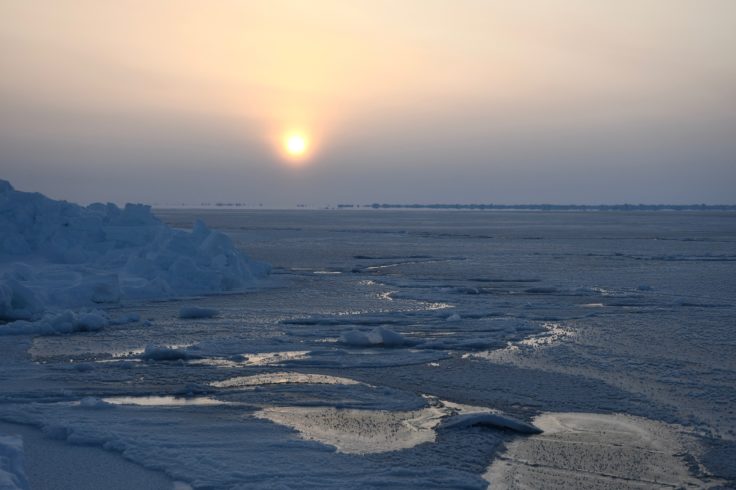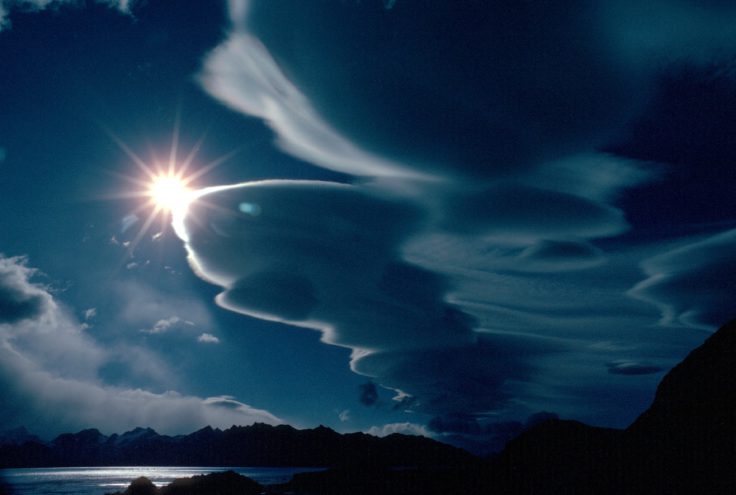New project to understand polar processes in global climate system
British Antarctic Survey researchers will work on a new Horizon 2020 project to advance their understanding of polar processes in the global climate system.
The CRiceS project, or Climate relevant interactions and feedbacks: the key role of sea ice and snow in the polar and global climate system, will contribute to a more precise understanding of the ocean-ice-snow-atmosphere system to deliver improved models that describe polar and global climate.
The Arctic and Antarctic regions are experiencing rapid and unprecedented changes due to global climate change, clearly caused by anthropogenic activities. Twenty first century projections show a substantial decrease of sea ice in both Arctic and the Antarctic, which are expected to impact society globally.

The CRiceS project brings together 21 international research teams, from Europe, Canada, South Africa, India and Russia, at the forefront of polar and global climate research. The CRiceS research project aims to enhance the modelling of the impacts that these regions have for the global climate.
British Antarctic Survey contribution
The BAS team is led by Dr Markus Frey, with colleagues Thomas Lachlan-Cope and Xin Yang. They will lead one of the CRiceS project tasks, which is to develop new process understanding of key aerosol-cloud processes controlled by sea ice, snow and the polar oceans. They will use existing Arctic and Antarctic/Southern Ocean data from expeditions, long-term monitoring stations and satellites to investigate the relationship between sea ice and its snow cover, biogeochemistry and aerosol/ clouds and develop new model descriptions for regional and global climate models. The research is expected to significantly improve our understanding of the coupled ocean-ice-atmosphere system and reduce the large uncertainties in predicting clouds, sea ice and climate in the polar regions and beyond.
BAS atmospheric and glacio-chemist, Dr Markus Frey, says:
“CRiceS provides the unique oppportunity to have observers and modellers closely work together to achieve a breakthrough in our understanding of the complex and highly coupled polar processes and improve our climate models and predictions.”
The new project involves an exceptionally broad team of researchers to tackle the role of polar processes within the climate system including climate physics, chemistry, and biology.
“We believe that our integrated approach, including experts on both modeling and observations helps us to understand, not only the polar processes, but also how the polar systems are linked to global climate and society”, states Risto Makkonen, coordinator of the project and research professor at the Finnish Meteorological Institute (FMI).

Funding
The project will receive 8 M€ funding from the EU and will be carried out during 2021–2025. The EU’s H2020 research programme funds projects that support the transformation to a low-carbon, resilient future and the climate action that supports the Paris climate agreement.
The EU has built an extensive role in polar research by coordinating joint Arctic and Antarctic collaboration initiatives and funding about 200 M€ on polar research projects in Horizon 2020.
CRiceS partner institutions are Finnish Meteorological Institute, Centre national de la recherche scientifique (France), Center for International Climate Research (Norway), University of Stockholm (Sweden), University of Bergen (Norway), Finnish Environment Institute (Finland), University of Helsinki (Finland), Institut de Ciències del Mar (Spain), Norwegian Polar Institute (Norway), British Antarctic Survey (UK), University of Cape Town (South Africa), University College London (UK), École polytechnique fédérale de Lausanne (Switzerland), Euro-Mediterranean Center on Climate Change (Italy), University of Groningen (Netherlands), University of Bremen (Germany), Alfred Wegener Insitute (Germany), University of Calgary (Canada), University of Victoria (Canada), National Centre for Polar and Ocean Research (India), and Institute of Computational Mathematics and Mathematical Geophysics (Russia).